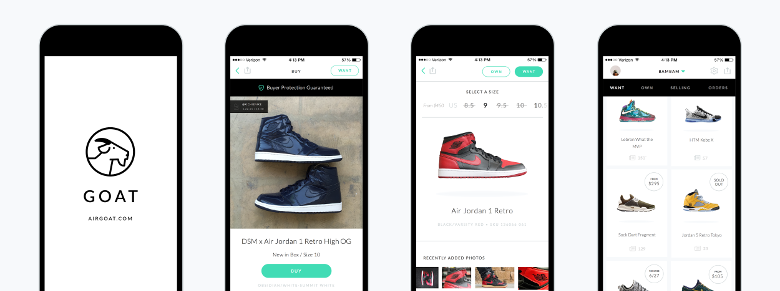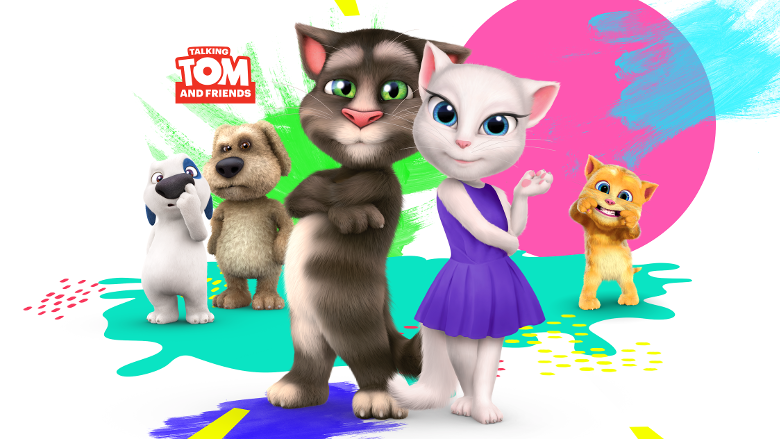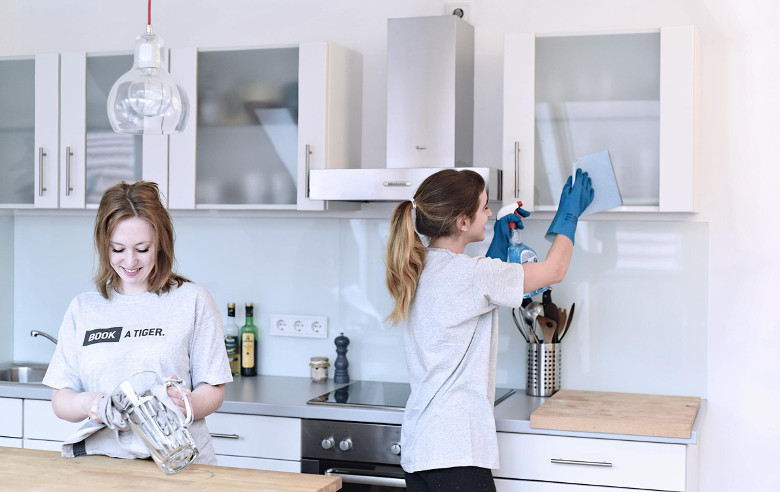Startup of the day (March 2017)

Continuing the series of Startup of the Day digests, today I present the most interesting projects for March. If you want to get acquainted with the rest, then I ask in my blog. Entries are available on Facebook , ICQ and Telegram .
1. TerrAvion
The American TerrAvion regularly photographs the fields so that their owners - farmers - quickly find out where and what is broken, where the pests got, and where there is not enough water. The service is not new, but TerrAvion came up with a new way to implement it - airplanes.

Other projects usually sell photographs either from the top - from satellites, or from the bottom - from drones. Both methods have their advantages, but there are also disadvantages. Drones turn out to be too expensive, one device manages to shoot too little, and satellites, on the contrary, can provide a very good price on a scale, but with an impractically poor resolution and cloud problem.
TerrAvion launches corn planes over its subscriber’s fields once a week, flying below the clouds and taking pictures with a resolution of 9 cm - “enough to see every vine in the vineyard”. In addition to the usual pictures for “just looking,” they take photos in the infrared range, and also determine the amount of water, the temperature of the earth and the density of vegetation.
The service is sold on an annual subscription, the price ranges from several dollars to several tens of dollars per season per acre (about 40 acres). Curiously, the startup is not trying to sell services and consulting services, but it is ready to integrate its data via API into any third-party service. That is, the farmer pays TerrAvion $ 4 per acre for the photographs, and if he wants to receive automatic recommendations based on them (“here the fields, it's time to clean up, but don’t do anything here”), then he buys some other service.
Despite the modest initial investment, the project is already popular, in the season of 2015 they said that they take 2.5 million acres weekly - this is about 15-20 million dollars in revenue per year and about 30 times more pictures than the same DroneDeploy in 2016.
However, there is also much more room to grow; in total, almost a billion acres is processed in the USA, while even 1% of the market is not covered. Money has recently appeared for scaling, already in 2017 TerrAvion received the first big round of investments - $ 10 million.
2. Goat

It's hard for a non-American to realize, but Goat is a special service for selling expensive, designer and collectible ... sneakers. Not a category in the Avito and Yula subsections, not a section in the VestiAire Collective, but a separate application with separate venture financing and an estimate of about $ 100 million. Well, of course, that’s not a unicorn, but $ 100 million for a sneaker reselling app! An estimate of 100 million for the venture round, I remind you, means that, according to the funds, the project will cost three hundred or more: it needs to come out with a profit, and not just enter. Although, on the other hand, the secondary sneaker market in the United States - $ 1.2 billion a year - justifies the price of a startup (investors take risks, but they are not idiots), but this is shock and insanity.
In addition to the disproportionality of positioning and invested money, Goat is quite boring. The main model works exactly like the same VestiAire Collective - this is probably the best option for expensive goods. The seller uploads his treasures to the site, the buyer selects something that suits him, clicks and makes 100% prepayment. Goat sends a notification to the seller, only at that moment he goes to the mail and sends his sneakers - not to the buyer, but to Goat. There they check the originality and condition of the shoes, if everything is OK, they send the goods and money further, minus their commission (9.5%), if not, they return both to the original owners.
Even due to the narrowness of the niche, Goat implemented two ideas that are almost beyond the power of general-purpose projects. Firstly, this is an instruction for creating ads. Goat clearly described what to talk about in the ad, at what angles, under what lighting and how many times to photograph the sneakers, and takes only those sellers who are able to follow the instructions. As a result, buyers see much more enjoyable content than on ordinary boards. Secondly, gluing ads by model. If 30 sellers sell unpacked gray Nike from the September 1994 collection, then the buyer needs to know only the minimum price of each size, and not whether Jack will supply it or John: the guarantee of originality is all the same from the service. As a result, the announcement looks like one, but if you don’t have the right size, you can leave a request: I pay $ 700 for the 11th. May be,
But all these innovations against the background of the main idea of the business, in my opinion, fade. The fight for the secondary market of sneakers!
3. Outfit7

Apart from Google and Apple with their presets, only two companies in the world - Outfit7 and Facebook - have achieved 5 billion installations of their applications. And if Facebook is part of modern culture, then Outfit7, despite its megapopularity, sits in some underground, they say little about it, it needs to be fixed.
Outfit7 is a Slovenian gaming company, it produces dozens of similar games in the Tamagotchi style about Tom Kitten and his friends: the character can be stroked, fed, walked and taken to the toilet, and the beast grows up, enjoys life and repeats in a funny voice everything that he hears into the microphone. And he knows how to fart!
Earn games on in-app purchases (beautiful clothes for pets, for example) and a wild amount of advertising, applications are crammed with it to some fantastic level, a paid video is hidden literally behind every careless click.
The popularity of Tom and his friends is relatively stable - tens of millions of downloads per month for five consecutive years: it is much longer than the era of Angry Birds, for example. (And it’s a shame to remember Pokemon Go against such a background.) During this time Outfit7 has already launched a bunch of non-game products - from the animated series in collaboration with Disney to the children's paper magazine in Russia.
What will happen next - of course, no one knows, but judging by the fact that the founders decided to jump off and recently sold their brainchild (for a billion dollars, by the way), there are some signs of decline on the horizon, Tom should not be the second Mickey Mouse . But five and a half billion downloads! I strongly advise you to see at least one of the games with your own eyes, to see what humanity likes.
4. AirHelp

According to European rules, airlines must pay substantial compensation to passengers for being late for more than three hours or refusing to board during overbooking, but in the USA it is possible to be late, but an unsuccessful overbooking must also be paid. And no, a sandwich and a bottle of water is not a payment, payment is several hundred dollars, depending on the details of what happened.
And of course, no one knows about this, no one is offered money. And if you demand them, then paperwork begins, which will not bring any pleasure, and it will eat time and nerves completely disproportionately possible victory.
But now there is AirHelp and several of its competitor counterparts. They take care of all the problems. You just need to fill out a statement on the site, and the startup will turn it into a legal complaint and in a couple of months will shake out everything that it really needs from the airline. The intermediary takes away 25% of compensation if the case went without court, and 50% if it did not. Payment, of course, is taken only for the result, the user has absolutely no risk. The law is on the consumer side, the system works.
The service is already four years old, the biggest round - $ 12 million - it raised last August. Spends money on marketing in European countries, is not actively coming out in the USA yet, and has not even studied laws in the rest of the world. AirHelp tells investors about a market of $ 16 billion, that is, 4 billion of potential revenue per year, but, of course, will never get anything close: the service is no longer unique and the market is not changing for their benefit, airlines are learning politeness .
In any case, no matter what the development of the startup ends, you can use its services calmly. The limitation period for such cases is three years, if since April 2014 you had any problems with aviation, then it is still not too late to get your money. This also applies to Aeroflot flights from New York or Paris to Moscow.
5. Book a Tiger

The German Book a Tiger is an approximate analogue of our Qlean: a service that offers home cleaners for the middle class. But, unlike all uber-like services, he hires artists officially, without any tricks with information services and other tricks, he hires them in the state, pays for holidays and everything that is supposed to. As a result, in theory, the price should rise, but in reality this is not - adjusted for the average salaries in the country at the cost of Book a Tiger, it is almost indistinguishable from the American Handy or our Qlean Lite, but the usual Qlean is noticeably more expensive.
But if the clients are accepted to the staff, then suddenly there is one big plus - the ability to work normally with B2B. It is usually psychologically difficult for businesses to pay for an information service for hire, but here you can directly use the same contract as with the old cleaning company, only change the name of the contractor. A business is usually less greedy than private individuals, you don’t need to learn how to clean it for money, it has been using such services for a hundred years - the B2B market is much tastier than B2C, and indeed it has become the main book for Tiger.
What is the difference between an innovative start-up and any big cleaning from the sixties of the last century left after that is not so easy to understand. Both run a large staff of cleaners, both sell their services to businesses, both use the same detergents and vacuum cleaners. Book a Tiger themselves answer a question about the difference like this: "... modern alternative ... online platform ... affordable and available ... reliable cleaners." In reality, they have a mobile application, if hipster millennial is responsible for choosing a contractor in the company - this is a very serious plus, and, besides, the price: compared to traditional cleaning, it is relatively low. In a bad version, the price will change when investors run out of money,
While everything is going just fine, not so much money has been spent, and in addition to Germany, they are already working in Austria, Switzerland and the Netherlands, in February they raised the next round by 20 million euros and promise to become a plus for the year.
